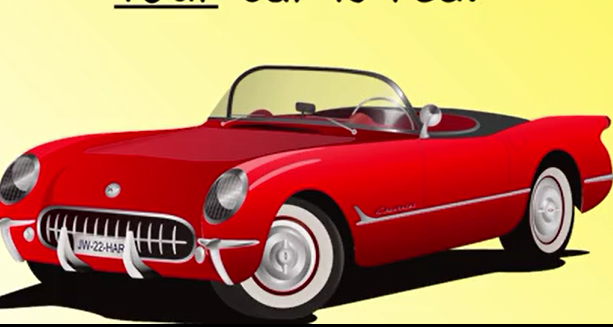This is Everyday Grammar. I'm Kaveh.
欢迎收看《每日语法》栏目,我是卡维。
And I'm Lucija. Kaveh, we covered antecedents.
我是露西佳。卡维,我们讲过先行词。
We covered superlatives. We covered linking verbs, and we covered parallelism.
讲过最高级、系动词和排比。
But we did not cover Determiners!
但我们没讲过限定词!
Wait a minute. If I remember correctly we did mention the Determiners in one of our past episodes, didn't we?
等一下,如果我没记错的话,我们在过去某期提到过限定词,对吧?
True, but Determiners are important, and I think we should spend more time on them.
对,但限定词很重要,我认为应该花更多的时间来讲。
Ok, let's start over.
好吧,我们再来一遍。

This is Everyday Grammar. I'm Kaveh.
欢迎收看《每日语法》栏目,我是卡维。
And I'm Lucija. Today we're talking about Determiners.
我是露西佳。我们今天要讲的是限定词。
A determiner is a word that comes at the beginning of a noun phrase.
限定词位于名词短语的前面。
It gives information about what is going to come.
它为将要发生的事情提供信息。
For example, "The bus was late."
比如,“巴士晚了。”
The article "the" is the determiner and "bus" is the noun.
定冠词“the”是限定词,“bus”是名词。
Determiners tell us whether the noun phrase is specific or general.
限定词告诉我们名词短语是特指还是类指。
Let's take "the boy" and "a boy" as an example.
我们以“the boy”和“a boy”为例。
"A boy" talks about in general, any boy at all.
“a boy”是类指,指任何一个男孩。
While "the boy" is a specific person.
而“the boy”指具体某个人。
Common specific Determiners include possessive pronouns.
常用的特指限定词包括物主代词。
The boy walked his dog.
男孩在遛他的狗。
Your car is red.
你的车是红色的。
So, we mentioned specific Determiners.
所以,我们提到的是特指限定词。
What about general Determiners?
那么类指限定词呢?
Common general Determiners are:
普通的类指限定词是:
A woman is driving a car.
女人开了一辆车。
I have an idea.
我有个主意。
And that's Everyday Grammar.
以上就是今天的全部内容。











